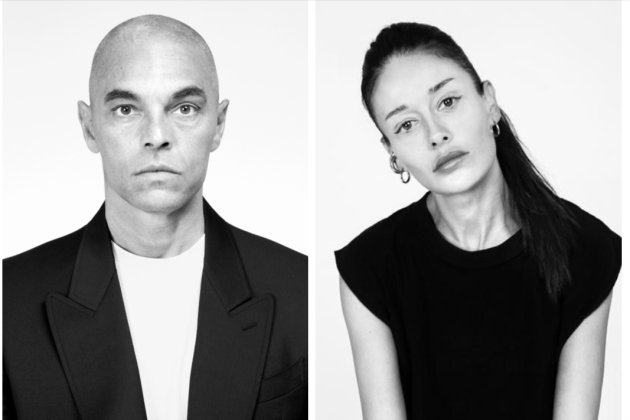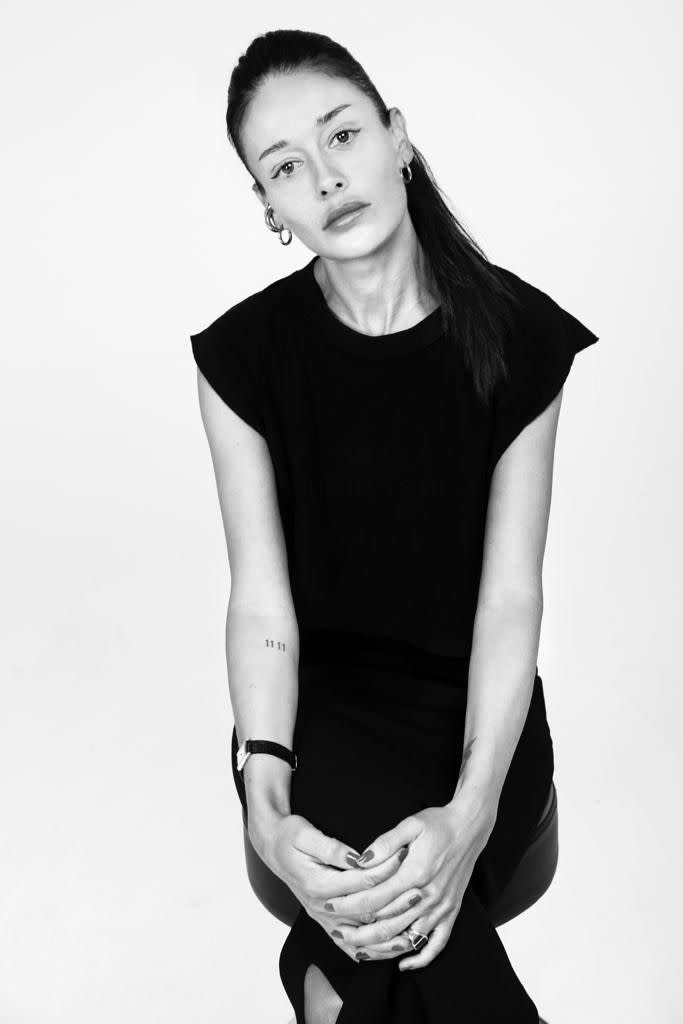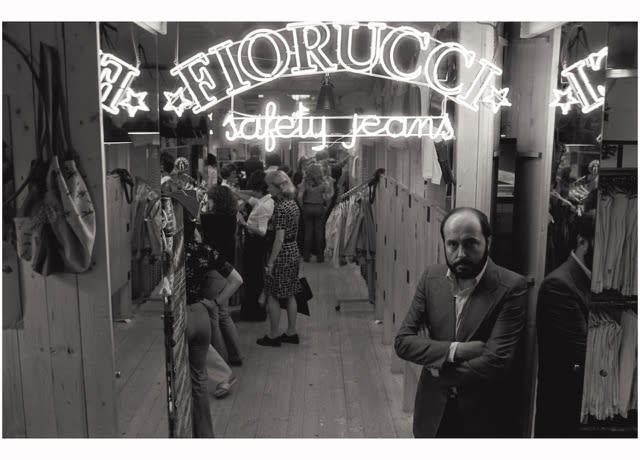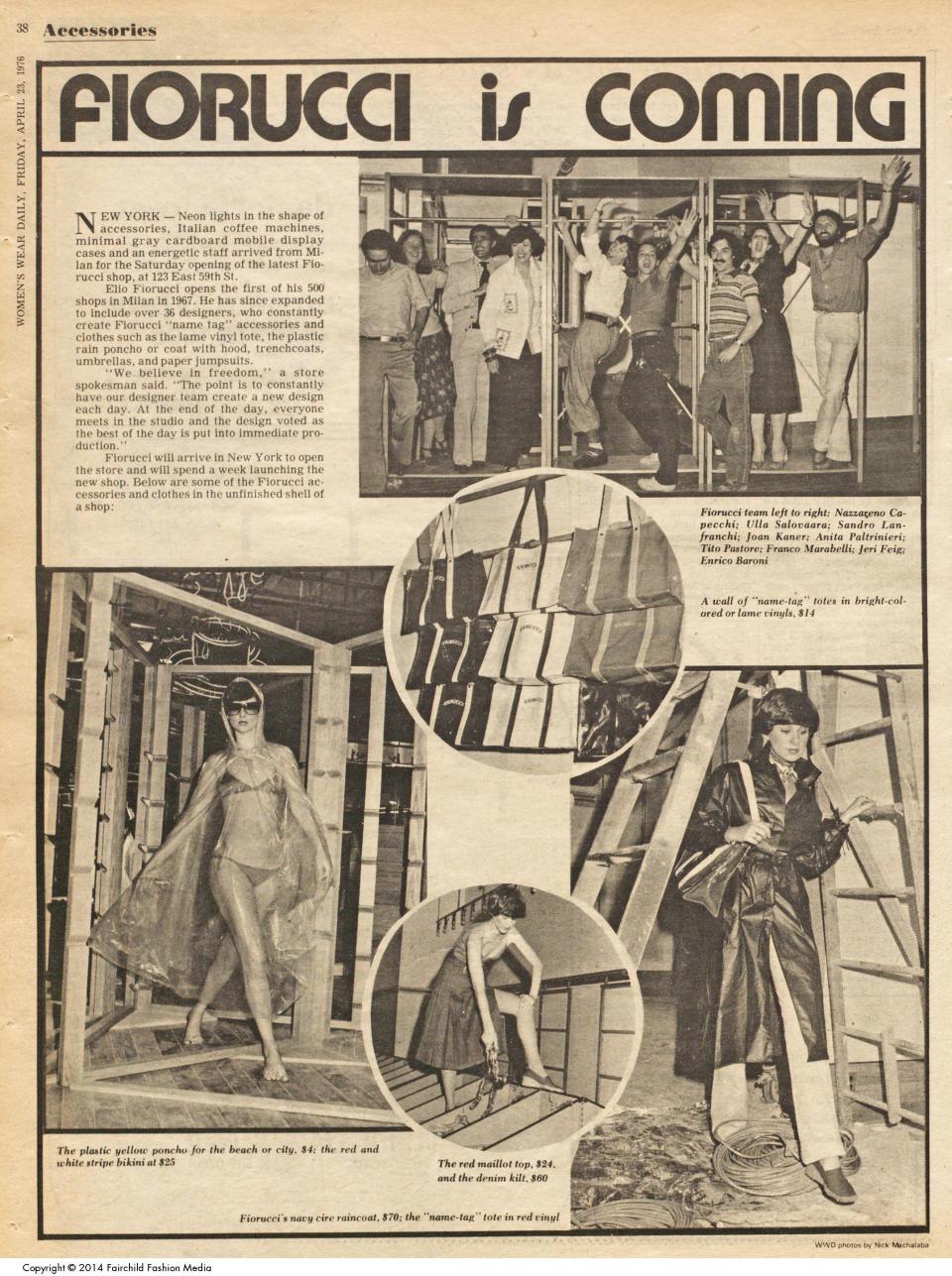Fiorucci Launches New Chapter With Return to Italy

MILAN — Fiorucci is returning to Milan with a new owner, a new management and a new creative direction.
The brand, founded by Italian visionary designer Elio Fiorucci after he opened the mother of all retail concepts in the city’s central San Babila in 1967, has unveiled a comprehensive plan for a relaunch.
More from WWD
On Wednesday the brand revealed that last year Swiss investor Dona Bertarelli took full control of the company, which will once again be headquartered in Milan. Financial details of the deal were not disclosed but Bertarelli already had a minority stake in the firm.
As reported, in 2015, after the brand’s founder died at age 80, Fiorucci was sold by the Japanese trading house Itochu to the veteran British clothing retailers Stephen and Janie Schaffer. The duo relaunched Fiorucci in 2017, setting the brand’s headquarters in London and opening a store in the city’s Soho.
As part of the new course, Alessandro Pisani has been appointed chief executive officer of Fiorucci, tasked with implementing the strategy for the brand.
Pisani is an industry veteran who most recently spent eight years at OTB Group. He joined the company in 2014 as general manager of the Diesel Black Gold line, later becoming brand director of Diesel. Previous experiences ranged from commercial roles at Valentino and Ballantyne to merchandising ones at Italian fashion manufacturer Sinv SpA for the Love Moschino and See by Chloé brands.
“I decided to take on this challenge at the end of last year and mainly because this brand is magic,” Pisani told WWD. “Honestly, I didn’t know much of its recent story prior to my arrival, but I knew very well the brand’s legacy and what it has represented for Italy, all the values that made it a label so loved by everyone.
“So I was intrigued by how we could work on inclusivity, creativity and authenticity today, to make this project interesting for a new audience,” continued the executive, underscoring that the mission is to reignite the “playful attitude and reshape its disruptive heritage in order to inspire a new generation.”
Pisani spoke about the perfect alignment of values between Fiorucci and the new ownership, underscoring that Bertarelli is a philanthropist and a strong advocate for environmental conservation, animal welfare and inclusivity, which were all causes close to the founder’s heart.
Business-wise, the new CEO’s relaunch strategy hinges on three main pillars: a new creative direction, the relocation of the brand from London to Milan and its overall repositioning.
As reported, last month Daniel W. Fletcher left as menswear artistic director, after being part of the business for three years. Fletcher’s most recent collection for Fiorucci, pre-fall 2023, was presented in May and took the brand in a new, more upmarket direction.
Francesca Murri has been appointed creative director, overseeing all categories with the goal of repositioning the brand in the accessible luxury segment. The designer comes from Ferragamo but through the years had stints at Versace, Giorgio Armani, Gucci alongside Alessandro Michele and Givenchy under Riccardo Tisci’s tenure.
“She has a strong background in luxury brands, next to important creative minds but also at companies that are very solid and structured. Beyond the creative vision, I believe these elements are essential for the complexities required by this project,” noted Pisani.

Murri’s first designs will be unveiled during Milan Fashion Week, with a presentation part of the official calendar. The label will officially kick off its new chapter by presenting 15 looks on Sept. 21. Yet Pisani said the first full-fledged range will be presented in November with Murri’s first pre-collection, and confirmed that the idea going forward is to continue to develop four collections a year.
“The return to Italy is another key element, in terms of heritage and the brand’s history. We want to keep this an international brand but with an eccentric, Italian point of view,” said Pisani, adding that the homecoming move will not only inspire the creativity of the collections but inform their Made in Italy quality and attention to sustainability, too.
“Accessible luxury is a new positioning for us, which will require us to work differently to express contents that are respectful of the Fiorucci legacy, done in a highly professional way,” said the CEO.
“What is important for us in this new chapter is to define a language that is immediate, authentic and positive, because this is a positive brand. We will do that with iconic pillars from the archives, through a certain approach to color and graphics, but all more elevated and in a more rigorous way in creating the collection. For me the elevation of the brand doesn’t mean becoming serious or austere, because that would distort the DNA of the brand, but the elevation of contents both in product and communication,” continued Pisani.
“It will be a gender-bending project, we will keep pushing on inclusivity and will try to do our best in terms of sustainability with the resources we have. These are all elements in the brand’s DNA,” he added.
The company will start to work on all categories right away, as Pisani pointed to a key focus on accessories, specifically bags. As for Fiorucci’s democratic side, it will be maintained with collaborations with other brands — mostly operating in specific product categories — and with artists.

“When we reasoned on the most iconic Fiorucci items, the immediate connection was with posters and stickers, even before fashion products came to mind. So on products, I believe we have a big opportunity with this higher positioning, while the democratization can be expressed with a balanced brand extension push,” said Pisani.
The plan is to physically merge the brand’s offices, design department and showroom into an open-space hub “Casa Fiorucci,” which could also become a meeting point for artists and a hot spot in Milan.
“But researching real estate is not easy today,” said Pisani with a smile.
He looks to find a venue sized between 6,500 and 10,800 square feet, preferably a former industrial space or one that retains a meaning for the city and is located in an area of cultural buzz. Yet he pragmatically acknowledged the ideal space needs to be not far from the center to be easily reachable by buyers.
Pisani said the company will maintain a link between Milan and London, one that is embedded in the brand’s history. The visionary Milanese emporium opened after the founder took a journey to London, was awed by the energy surrounding Barbara Hulanicki’s Biba store in Kensington and wanted to import to Italy the same spirit of freedom in a time when terrorism and political tensions loomed over the country.

For the moment, Pisani doesn’t eye retail openings, as he emphasized that the main focus “for the next two years is to create contents, so that the brand can really engage with consumers with a precise vision and aesthetic.”
Distribution-wise, all efforts will converge on enhancing the e-commerce platform to maintain a direct conversation with end consumers, as well as boost the wholesale presence. Pisani aims to reach 350 wholesale doors in the next three years.
The company will start the distribution expansion from Europe — including the U.K. — and the U.S., which Pisani said is the second natural home of the brand, again for its historic ties. In 1976, the founder opened a flagship in Manhattan that sealed Fiorucci’s international success. Commonly described as a “daytime Studio 54,” it became a thriving cultural hub around which key personalities gravitated, including Andy Warhol, Truman Capote, Jean-Michel Basquiat, Madonna, Marc Jacobs, Robert Mapplethorpe and Jean-Paul Goude, to name a few.

In terms of markets to reach in the future, Pisani also pointed to Japan. “And I believe that after this first stage we will also have the attention from countries like China and South Korea, where there’s a desire for very creative and qualitative projects and are super interesting markets,” he said.
“We always ask ourselves what Elio Fiorucci would have done today and I think that [expansion in these countries] and to reach the most effervescent markets to intercept new cultural developments to bring into the Fiorucci world would have been one [effort],” said Pisani.
The feedback from both buyers and consumers will be instrumental in understanding how to build a future presence in the retail channel, too. Pisani candidly admitted that even though the current store in London is performing well, there are no plans to keep the unit open long-term, due to “the general economic conditions that changed post-Brexit and that caused a more onerous management of brick-and-mortar stores” as well as “because in terms of brand positioning, I don’t believe that location will align with the new journey of Fiorucci.”
“How to face retail has a major importance for me, of course business-wise because it’s an area that requires big investments but also because we inherit a heavy, heavy legacy from the past. The risk of having a bad copy of the format in Galleria Passarella [Milan emporium] is high,” said Pisani, who teased that commercial activities could be folded into the Milanese hub in a first phase of the strategic plan.
Best of WWD
